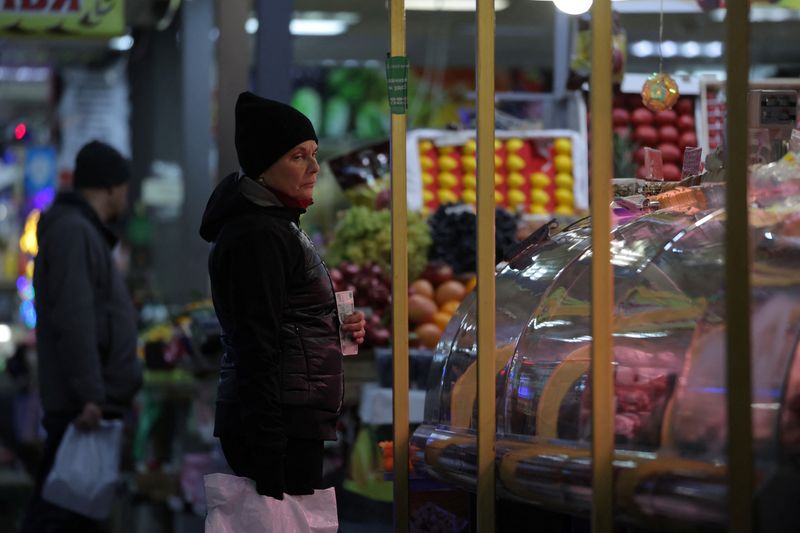No room for Russia to cut rates this year as inflation climbs, economy overheats: Reuters poll
2024.08.02 10:37
By Alexander Marrow
(Reuters) – Russia’s central bank has no room to lower rates from 18% this year, a Reuters poll showed on Friday, with analysts forecasting inflation above the bank’s 4% target in an overheating economy propelled by military production and consumer spending.
Russia’s economic growth relies heavily on large-scale government spending on arms production as Moscow funds its war in Ukraine, contributing to soaring real wages in a tight labour market with unemployment at a record low.
The consensus forecast of 14 analysts polled by Reuters in late July and early August suggested the Bank of Russia’s key rate would end the year at 18%, up from 17.75% in the previous poll.
The central bank warned of economic overheating as it hiked rates to 18% last week, vowing to bring down stubborn inflation, currently running at about 9%.
Mikhail Vasilyev, chief analyst at Sovcombank, was one of four economists expecting tighter monetary policy by year-end, predicting another hike, in September or October, to 20%.
“We believe that the opportunity for a key rate cut will open up only in mid-2025, when inflation will steadily slow towards the 4% target,” Vasilyev said.
Analysts forecast year-end inflation sharply higher at 6.9%, up from 6.4% in last month’s poll. That would follow annual inflation of 7.4% in 2023 and 11.9% in 2022.
Expectations for Russia’s 2024 gross domestic product growth were also markedly raised to 3.6% from 3.1% in the previous poll, as Russian government and consumer spending remains strong.

GDP grew 4.7% in the first half of the year, the economy ministry estimated this week.
The rouble, currently buttressed by capital controls, state foreign currency interventions, high rouble interest rates and oil prices, is seen weakening to 96.1 to the dollar over the next year, slightly stronger than in the previous poll.
(Reporting and polling by Alexander Marrow in London; Editing by Helen Popper)








